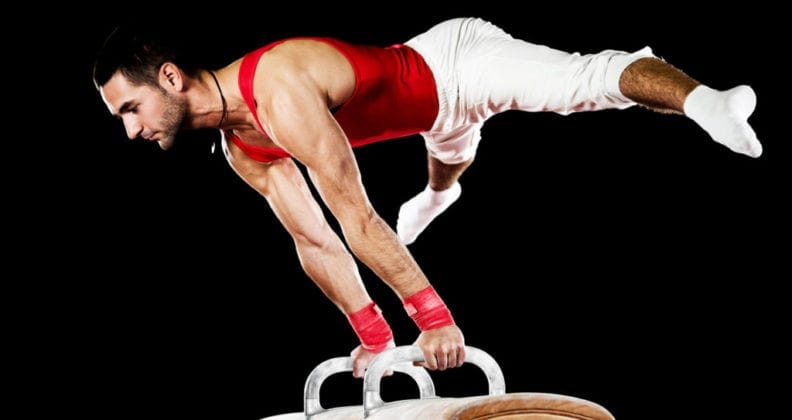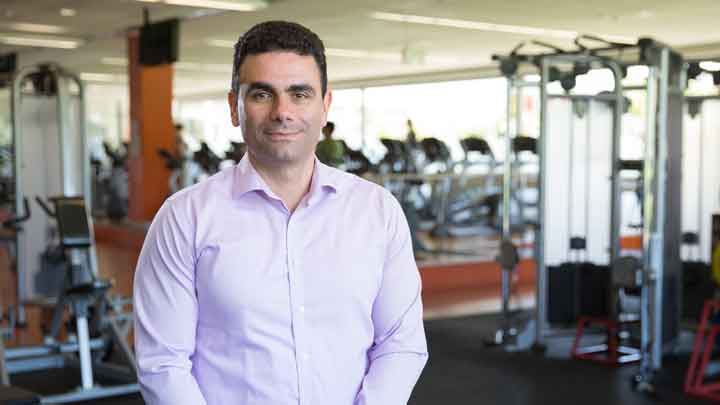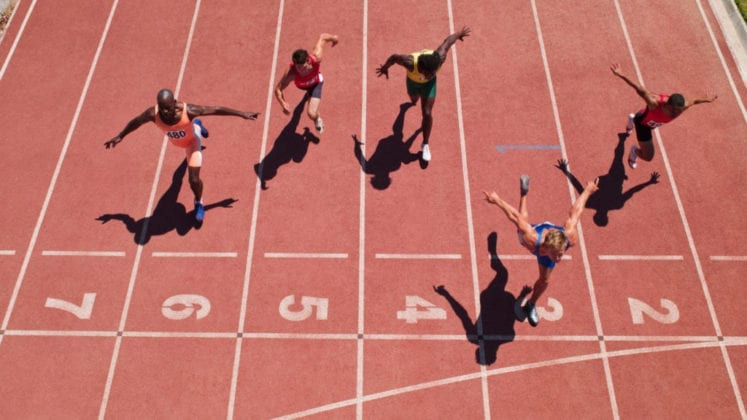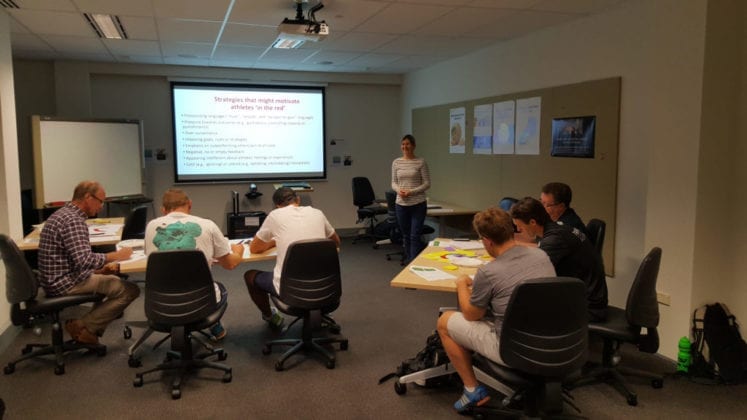Recent doping scandals in elite sport have cast a long shadow over global sporting events. Russian athletes were barred from competing at the 2016 Olympic Games in Rio and the 2018 Winter Olympics in South Korea due to the country’s sophisticated state-sponsored doping program. Lance Armstrong, once considered the best cyclist in the world, was stripped of his seven Tour de France titles, and banned from the race for life, for a complex doping protocol that also implicated his team mates. In a widely publicised spat, Australian medallist Mack Horton accused Chinese swimmer Sun Yang of being a drug cheat at the Rio games. As Australia hosts the 2018 Commonwealth Games, all eyes are on the 4600 athletes competing and the nation’s drug testing protocols.
The Australian Sports Anti-Doping Authority (ASADA) has come out swinging against the possibility of drug cheats competing at the Commonwealth Games. In August 2017, it announced a High Integrity Anti-Doping Partnership to support clean athletes, which brought together the Commonwealth Games Federation, the Organising Committee for the Gold Coast 2018 Commonwealth Games and ASADA. The anti-doping program includes pre-games testing, in-games testing and, for the first time, long-term storage of all collected samples for future analysis and re-testing if required.
Despite the efforts of sporting bodies to identify athletes who are doping, the practice remains widespread. John Curtin Distinguished Professor, Nikos Ntoumanis, School of Psychology, researches the impact of the social environment on athletes, and believes coaches play an important role in educating athletes about doping.
“My research on anti-doping examines the role of coaches in influencing, directly or indirectly, their athletes’ decisions to take a banned substance, for example, steroids, or use a banned method, such as blood transfusion, which knowingly or unknowingly to the athletes, is banned by the World Anti-Doping Agency,” he said.
“I have been studying the role of the social environment in sport for about 20 years, primarily looking at how coaches’ behaviours, beliefs and interpersonal style of communication establishes a prevailing ‘motivational climate’ within sport, and how this climate affects athletes’ motivation, emotions, beliefs and behaviours. Engaging in doping is one such behaviour, hence my interest in examining doping in sport from a motivational perspective.”

Professor Ntoumanis’ research has demonstrated that, while coaches may be interested in influencing their athletes’ perspectives on doping, many believe they do not have the skills to communicate effectively with their charges about such a sensitive topic.
“In 2016, we conducted a project, A cross-cultural investigation of the effects of coach motivational strategies on athlete doping behaviors: Direct and indirect relations, which was funded by the World Anti Doping Agency, where we interviewed coaches in Australia and Greece about anti-doping education. Most interviewed coaches indicated an aspiration to influence athletes’ doping-related decisions, but they lacked the confidence to deliver anti-doping education,” Professor Ntoumanis said.
“Besides feeling efficacious to deliver anti-doping education, it’s also important that coaches communicate such information in motivationally supportive ways. Coaches instruct and try to motivate their athletes in ways in which they were coached themselves, or regard as most effective, or culturally acceptable, or indicative of competent and authoritative instruction. However, some of these communication styles are problematic and counterproductive, for example an attitude of ‘it’s my way or the highway’.”

Following his research project in 2016, the International Olympic Committee funded Professor Ntoumanis and his colleagues from the Physical Activity and Well-Being Lab, Associate Professor Daniel Gucciardi and Dr Eleanor Quested, to run a trial of an anti-doping education program for coaches, CoachMade. CoachMade is currently being delivered in Australia, the UK and Greece and the trial is targeting more than 120 coaches and 1000 athletes in the three countries.
“This program trains coaches in the latest anti-doping education and, very importantly, shows them how to provide such education using a motivationally supportive communication style. For comparison purposes, another group of coaches receive the same factual information about anti-doping but are not trained in how to provide such information to their athletes using a motivationally supportive style,” Professor Ntoumanis said.
“We will examine the effects of the two types of training on athlete-related variables, such as attitudes toward doping, doping intentions and doping use, and coach-related variables, such as efficacy to deliver anti-doping information and discuss doping-related issues with their athletes.”
Speed, strength and endurance – why athletes dope
Historically, competitors have always doped to improve their athletic prowess – chariot racers in Rome drank pre-race herbal infusions for strength, and records from the 1800s show a competitor consumed laudanum before an endurance walking event – however the sophistication of 21stcentury doping protocols can make it very difficult, if not impossible, to detect drug cheats.
In 2011, an anonymous survey of athletes competing at the 2011 World Championships in South Korea, commissioned by the World Anti-Doping Agency and conducted by the University of Tuebingen in Germany and the Harvard Medical School, showed that more than 30 per cent of competitors admitted to using a banned substance within the past 12 months, however only 0.5 per cent failed regular testing. The same survey of athletes competing at the 2011 Pan-Arab games showed that 45 percent had doped while 3.6 failed testing.

Professor Ntoumanis believes that the pressure-cooker environment of rigorous training and competitive drive, the expectations of coaches, team mates, sponsors and the public, and the ever-present desire to win, is simply too much for some athletes to cope with.
“The temptation is always there. Of course, most athletes play by the rules and have a high moral code. Nevertheless, there are situations which can increase the temptation to take a performance enhancing substance,” Professor Ntoumanis said.
“In competitive sport there is a lot at stake, for example lucrative sponsorship deals, so the temptation to cut corners is salient. In addition to internal pressures to dope, there are various external pressures, overt or covert, from the immediate social environment within the team, or from the highest levels of a sport administration or government.
“Pressures in sport can also make athletes more susceptible to accidental doping, that is unknowingly taking a substance or a medication that is banned by the World Anti-Doping Agency. Lack of due care is often a reason for such actions, however at other times athletes might be tempted to experiment with unknown substances when they feel the pressure to excel at all costs.
“When winning is everything, one will do anything to win! Hence, motivational factors are important contributors to intentional and unintentional doping use. Our CoachMade program educates coaches about how the ‘motivational climate’ they create – for example, a win at all costs approach – can indirectly increase athletes’ temptations to knowingly dope or experiment with an unknown substance or avoid due diligence.”
Doping’s reach: recreational, amateur, elite
If an elite athlete is caught doping, the ramifications are severe and wide-reaching. Typically ostracised from their sport, they can be stripped of their medals, inevitably lose sponsorships and legal proceedings may be launched against them. Public adulation can switch to public condemnation.
“Athletes risk their career by engaging in doping. If caught, they can be suspended from their sport for a number of years, or for life if they are caught repeatedly, and face public scrutiny. There are also financial implications such as penalties and loss of sponsorship deals,” Professor Ntoumanis said.
“In addition, there are several physical and psychological consequences, some of which differ as a function of the banned substance taken. Examples include increased aggression, mood swings, high blood pressure, hypertension, increased risk for infertility and abnormal growth of organs.”

Despite the well-publicised physical, psychological and social issues around doping, athletes continue to take banned substances to improve their athletic performance. According to Professor Ntoumanis, the practice is prevalent in amateur and recreational, as well as elite, sport.
“Unfortunately, doping is not confined to the elite adult sport. Evidence presented to the Australian Senate Inquiry into drugs in sport claimed that children as young as 10 years had been given drugs to improve their performance in sports such as weightlifting,” Professor Ntoumanis said.
“There is growing use of banned substances in recreational sport as well as in fitness centres, primarily the use of image-enhancing substances such as steroids. In a survey commissioned by the BBC last year, a third of amateur sports people sampled said they personally knew someone who has doped. In some segments of the population, for example bodybuilders, one could argue that doping has become normalised amongst many competitors.
“Astonishingly, there were reports in the Australian media last year that almost one Australian athlete a week had been sanctioned for doping offences during the preceding four years. I wouldn’t go as far as to say that doping has become normalised in the wider context of sport, but I would say that very few people nowadays are surprised when an athlete is caught doping.
“Sport governing bodies need to provide the education, incentives and training for all key personnel within sport to receive scientific education on anti-doping, and to create the appropriate motivational environments within which athletes will feel less pressured or tempted to knowingly take a banned substance or experiment with an unknown substance.”



